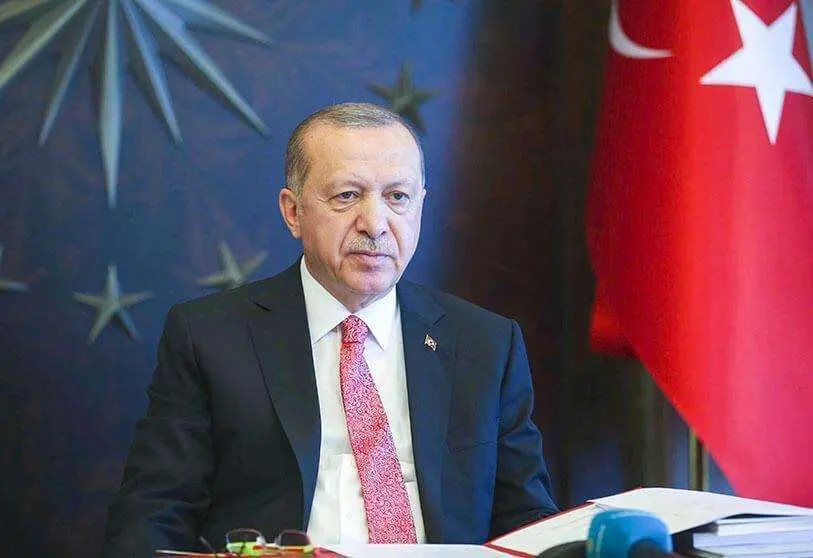Turkey's growing influence

One of the important phenomena of recent times is Turkey's growing political weight in our strategic neighbourhood. The Ottoman Empire has played a leading role in the Eastern Mediterranean and the Middle East since the conquest of Constantinople in 1453 until its end after the Great War. Today, after a century's hiatus, Turkey is re-emerging as a power to be reckoned with in the eastern Mediterranean.
Erdogan's foreign policy (his domestic policy is increasingly authoritarian and Islamist) has several priority axes that focus on the Mediterranean, the Middle East and Central Asia, while privileging important relations with Europe, the United States, Russia and China.
In the Mediterranean, its traditional confrontation with Greece over the Aegean and the Dodecanese islands continues unabated, as does the partition of Cyprus, while it intervenes militarily in the war in Libya and shares with it a good chunk of sea in which it hopes to find gas, as Egypt and Israel have already done.
In the Middle East it disputes Sunni leadership with Saudi Arabia, backs the Muslim Brotherhood against Egypt, and intervenes against Bashar al-Assad in the Syrian war where it has occupied a 30-kilometre-thick strip of land to protect itself, it says, from the Kurds. It clashes with Iran in Syria and competes for regional hegemony, while trying to maintain its form.
Its projection towards Central Asia is important, taking advantage of its support for Azerbaijan and its cultural and identity affinity with the countries of the Organisation of Turkic States (Uzbekistan, etc.), which are rich in gas and oil. Turkey wants to take advantage of the war in Ukraine to become a hub for new communication routes between China and Europe without passing through Russia, with projects such as the Trans-Caspian Pipeline, the Central Corridor that runs from the Caspian Sea to Turkey, or the China-Kazakhstan-Iran-Turkey railway that provide other outlets for the Chinese Silk Road.
The relationship with the EU is complicated as Turkey is a candidate with little hope of joining. At least for the moment. But it hosts three million Syrian refugees who would like to come to Europe in exchange for 'aid' worth 6 billion euros. Its relationship with Greece is stormy and it still vetoes Sweden's NATO accession with accusations of protecting Kurdish 'terrorists'.
Nor is its relationship with the US, where Fetullah Gulen, accused of inspiring the 2016 coup against Erdogan, resides, easy. NATO, of which Turkey is a member, also interferes in this relationship, even though it has purchased the modern Russian S-400 missile defence system, much to the indignation of Washington, which believes that it could endanger the keys and secrets of the Atlantic Alliance. In retaliation, the United States has therefore excluded Ankara from the F-35 aircraft programme.
Turkey seeks to maintain good relations with Russia despite a number of bilateral crises over the Syrian war, such as the assassination of the Russian ambassador (2016) and the shooting down of a Russian plane (2015). But Ankara has been very careful to condemn the invasion of Ukraine because Russia sends it arms and tourists, bilateral trade is very important, and Moscow helps it financially in the face of Erdogan's economic mismanagement (80% inflation in November). Moreover, ROSATOM is building Turkey's first nuclear reactor. In the current crisis, Turkey has mediated between Russia and Ukraine for prisoner exchanges and to facilitate the export of much-needed Ukrainian grain from Africa.
Even so, Russia's weight in Turkey is diminishing while China's is strengthening because Beijing sees it as a platform to facilitate its access to the Mediterranean, the Middle East and Europe, and as an ally in Central Asia to help unseat Moscow's remaining influence in the countries that were once part of the Soviet empire. Turkish-Chinese trade, which amounted to $1 billion in 2001, has risen to $34 billion today, and this is another reason why Ankara does not criticise the situation of the Uighurs of Xinjiang despite their Muslim religion and Turkic identity. Realpolitik they call it.
Overall, Turkey gives the impression of pursuing a strong independent policy, omnialigned if I may use the word, in the coming bipolar world. And that is why, without renouncing NATO, Ankara has just applied for membership of the Shanghai Cooperation Organisation (which accounts for 25 per cent of the world's GDP) led by China. It is thus a Mediterranean neighbour with an awareness of its historical past, with a clear ambition for power in its neighbourhood and with which, as a consequence, it will have to rely more and more on every day.
Jorge Dezcallar, Spanish Ambassador.

